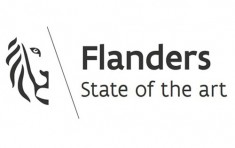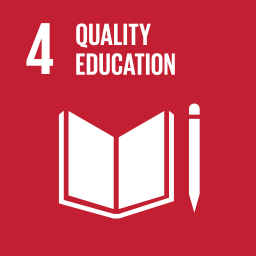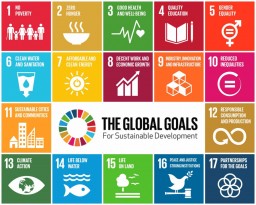
Like elsewhere in the world, South African youth are concerned about the state of their climate. Climate change education empowers them and their communities to proactively and innovatively manage their changing environment. With support from the Flemish government, VVOB and South African partner GreenMatter collaborate for quality climate change education in South Africa.
VVOB’s first climate project
Across the world, youth are advocating for action on climate change. Young people in South Africa too are passionate about the issue, as their country in particular is facing the dire consequences of climate change. The observed rate of warming, for instance, has been 2°C per century or even higher – more than twice the global rate of temperature increase. Urgent actions are needed to cope with the changes in rain patterns and sustained and intensified heat waves.
As education is an indispensable changemaker in the fight to curb climate change, VVOB cannot stand idly by. In the next three years, VVOB and South African partner GreenMatter support South African educators and officials in implementing climate change education (CCE). Supported by the Flemish government, the ‘Keep It Cool’ project empowers youth, teachers and their communities in the face of the changing climate through teacher professional development and innovative CCE activities at school.

Keep It Cool!
Check out all the technical specifications of the Keep It Cool project here.
Non-communicating vessels
South Africa’s policies show a clear concern for the environment and for climate change in particular. In 2011, the government issued the National Climate Change Response White Paper (NCCRWP), expressing its commitment to responding to climate change challenges. The White Paper even called to mainstream climate change education (CCE) in the education system. Subsequent policies have re-emphasised the strategic role of education and skills development in climate change adaptation.
Yet a strategy to coordinate and implement CCE has been missing. The main culprit? Insufficient cooperation between stakeholders, most importantly between the Department of Basic Education (DBE), the Department of Environmental Affairs (DEA), and higher education institutes (HEIs).
While knowledge of climate change is available in the DEA and HEIs, departments dealing with initial and in-service teacher education, or development of teaching and learning materials are not sufficiently aware of issues such as climate change and biodiversity. Nor do school leaders and teachers know how to address and incorporate such issues in school. Effective CCE therefore requires building bridges between the usually non-communicating sectors of environment and education. Together, and with Flanders’ support, VVOB and GreenMatter are well-positioned to broker strong relationships between the policymakers responsible.
Putting policies into practice
At the core of Keep It Cool is the implementation of innovative, curriculum-aligned CCE projects, involving students and communities from 100 secondary schools in KwaZulu-Natal, Eastern Cape and Limpopo – the most populous provinces in South Africa. To this end, the project will strengthen the efforts started by GreenMatter’s Fundisa for Change programme, which brought together leading universities, such as Rhodes University, the University of KwaZulu-Natal and others, in a community of practice on teacher education for transformative environmental education.
To amplify the effect of the universities’ teacher training, Keep It Cool will collect existing learning support materials, develop complementary ones and ensure their alignment with national policies for climate change response. Whether or not CCE is the aspired changemaker will also be examined by a selection of the partner universities.
Climate change education & the Sustainable Development Goals
By advancing climate change education, Keep It Cool is explicitly aligned with SDG 13 on climate action. In particular, it makes a direct contribution to the achievement of target 13.3.: Improve education, awareness-raising and human and institutional capacity on climate change mitigation, adaptation, impact reduction and early warning. Moreover, Keep It Cool furthers the achievement of SDG 4 on quality education, and more specifically of target 4.7: By 2030, ensure that all learners acquire the knowledge and skills needed to promote sustainable development […].
Environment at the heart of quality education
Keep It Cool marks another big effort of VVOB to raise awareness for the environment through education. Like gender equity, environment is a cross-cutting issue in all our programmes. In Rwanda, we work together with the Rwanda Environment Management Authority to raise awareness among school leaders about the environment. In Cambodia, VVOB has developed an eco-school manual aiming to ban plastic from the school compound. And, in Ecuador, one of our projects revolves fully around skilling youth to work in the sector of sustainable tourism.
To VVOB, environment is at the heart of quality education. Or, as our Environment and Sustainable Development Charter reads, quality education plays “an important role in building the resilience of communities (particularly poor and vulnerable population groups) to climate and environmental change, in motivating learners to adopt sustainable lifestyles and in preparing them for the potential opportunities provided by viable [green] economies”.






